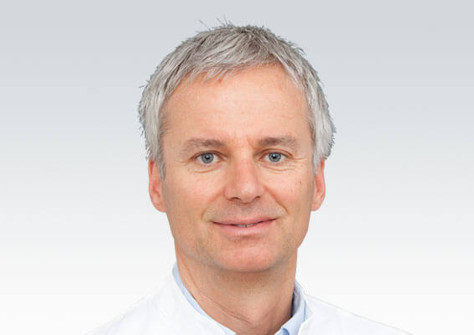Biological knee prosthesis
Biological knee prosthesis
180,000 artificial knee joints are implanted in Germany per year. An alternative to this procedure is a biological prosthesis, which Professor Lill strongly recommends in the event of a one-sided abrasion of the knee joint.
Most artificial knee joints are so-called surface replacements. This means that the articular surface of the femur and then tibial plateau are replaced by metal implants. A plastic disc is then placed between the metal elements. Even though the results of artificial knee surgery are often highly satisfactory, the alternative biological prosthesis is still often the better choice.
Your advantages at OrthoCenter Munich
- Orthopedic treatment focus on spinetherapy
- Wide range of conservative and operative procedures
- Gentle procedures in focus: Dr. Riedel specializes in gentle pain therapy. He was head physician in various pain clinics for over 20 years
- Joints and surgical expert: Prof. Dr. Lill specializes in the treatment of joints. He has years of experience in the field of minimally invasiveand arthroscopic ops.
- Cooperation with clinics and research institutes worldwide
- Renowned private practice: the OrthoCenter is internationally known and repeatedly welcomes patients from abroad who come to Munich for treatment
Biological knee prosthesis
A biological prosthesis does not need a metal artificial joint, which means that the original knee joint remains intact. Furthermore, unlike the traditional knee prosthesis, no bone is removed and no alien material is used. When using a biological prosthesis, the bone surface in the area of extensive cartilage damage (osteoarthritis) is removed. This stimulates the development of replacement cartilage.
Professor Lill recommends
Biological prosthesis surgery is an arthroscopic operation (joint arthroscopy). The procedure creates a layer of replacement cartilage that often lasts for many years. In some cases the surgery can be repeated after a few years time. It is often necessary to adjust cases of “genu valgum” (knock knees) and “genu varum” (bandy legs) during biological prosthesis surgery to optimise the load ratio within the joint. This ensures that the newly generated cartilaginous tissue is not excessively stressed by a one-sided load within the joint. After surgery the affected joint has to be disburdened for a few weeks. The patient needs to engage in passive movement exercises on a CPM bar on a daily basis to support the regeneration of cartilage.

Your specialist Prof. Dr. Lill
YOUR EXPERT FOR KNEE PROSTHESIS SURGERY
Would you like to find out more about biological knee prosthesis surgery at OrthoCenter Professor Lill? Arrange an appointment with Professor Lill straight away! The renowned specialist will gladly inform you about the advantages and risks of a biological prosthesis during an extensive consultation session.










